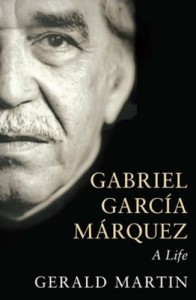Young American poet Adam Gordon is a fraud and a bastard. And the fact he’s spending a year in Madrid, as the recipient of a prestigious fellowship, is thanks to total pretence. Officially, he’s in the Spanish capital to write a “long and research-driven poem… about the literary response to the Civil War.” But Adam intends doing no such thing (thank god). Instead he smokes pot, takes prescription drugs, forms wafer-thin relationships and frets constantly about the validity of his experiences. If that narrative risks coming off as trite, then Leaving the Atocha Station, by American poet Ben Lerner (who spent a year in Madrid as a Fulbright scholar), is far from it. The book, which is thin … [Read more...] about A new take on the American abroad
literature
Spain’s literary giants are lost in English translation
An indisputable criterion of success for any novelist is when Penguin Modern Classics signs up your backlist, especially when it’s for a five-figure sum. Which is what has happened to Javier Marías. The 60-year-old Spanish writer, whose latest title, The Infatuations (Los enamoramientos), will be published in English in early 2013, joins an exclusive group of Spanish writers in Penguin’s catalogue: Cervantes, Quevedo, Jacinto Benavente, and Lorca. Yes, that’s it. Four writers: the first two of whom died in the 17th century, the next in 1954; although he stopped writing long before that. For Penguin, and most US and UK publishers, it seems that, until now, Spanish literature ended with the … [Read more...] about Spain’s literary giants are lost in English translation
¡Sangre!
Her name was Catherine Sintes. She was the illiterate child of Catholic peasants from Menorca but grew up near Oran, Algeria, to where many dirt poor Spanish families migrated at the turn of the last century. It was where she married a farm worker raised in a Protestant orphanage, a kid named Lucien Camus, who would give her the son they would soon name Albert. Not an astonishing background, and neither Spain nor Africa are universally known for their thinkers. For even had Catherine stayed home, it is doubtful the Baleares would have produced much more than an avid tennis player. But colonial Algeria producing the melting pot and gene pool that sometimes gives rise to the development … [Read more...] about ¡Sangre!
Revisiting Laurie Lee’s Spain
The vista below me spread from Ronda to the Rif, a classical arrangement of sea and rock, with the mouth of the Mediterranean pierced by the wash of ships tracing a course as old as Homer. Kites and kestrels swung silently overhead, smouldering in the evening sun; and twilight approached, the pillars of Hercules turned purple and the sea poured between them in a flush of lavender. Alone, with my back to a sun-warmed rock, I finished the last of my food, gazing where Africa and Europe touched fingertips in this merging of day and night. It is over three-quarters of a century since a young Laurie Lee disembarked at the Galician city of Vigo, having crossed the Bay of Biscay, with a violin … [Read more...] about Revisiting Laurie Lee’s Spain
Farewell to Delibes’ rural dissent
Miguel Delibes, who died on March 12 at the age of 89, was born in Valladolid, the capital of Castile, where he lived his entire life. He was typically Castilian in many ways: serious, courteous and unostentatious to the point of austere; less common in this conservative region, he was also a liberal democrat. Delibes described his work as “Castile speaking”; he spoke of the lives of rural people and the disappearance of rural communities as Franco tightened his stranglehold on the countryside in the 1950s and 1960s through an unholy alliance between landowners and the Catholic Church. Like many other artists who lived through the Franco years, Delibes spent his life fighting a … [Read more...] about Farewell to Delibes’ rural dissent
Unmasking the weaver of dreams
There is an unforgettable scene in Gerald Martin’s biography of Gabriel García Márquez, when the Colombian writer, who is leading a hungry and desperate existence in Paris, spots his hero Ernest Hemingway wandering down the street in Paris one morning in 1957. García Márquez, shy but determined not to let his idol walk on by, shouts out: “Maestro!” Hemingway replies: “Adiós, amigo!” and disappears. The image of a young, still undiscovered García Márquez chasing after a writer he reveres contrasts sharply with that of the García Márquez we have come to know. For at least the last 20 years he has been an easy-going grandfather figure, oozing gnomic bonhomie and magical tales. In the … [Read more...] about Unmasking the weaver of dreams





